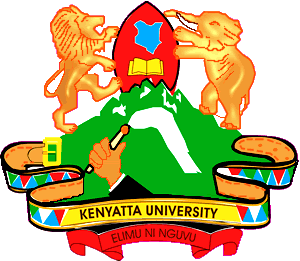Certification: Bachelor of Science (Community Resource Management)
Unit Code and Title
Level 100
University Common Units
UCU 100: Communication Skills
UCU 101: Development Studies
UCU 103: Introduction to Critical and Creative Thinking
100 level Departmental Core units
HCR 100: Community Resource Management
HCR 101: Human Development
HCR 102: Trends in community Development
2nd and 3rd Department Units
Students take 3 units each from 2 other departments of choice at 100 level
Foods, Nutrition and Dietetics Units
HFN 102: Introduction to Foods Nutrition and Dietetics
HFN 105: Nutrition in the life Span
HFN 101: General Biology
Sociology Units
ASC 100: Introduction to Sociology
ASC 101: Introduction to Anthropology
ASC 102: Social Statistics I
Gender and Development studies Units
AGD 100: Introduction to Gender & Development AGD 101: Evolution of Gender & Development AGD102: Gender Culture & Development
Environmental Health Units
PPH 101: Foundations and Principles of Population Health
HEH 100: Foundations of Environmental Health
HEH 109: Food Sanitation and Safety
Level 200
HCR 200: Community Development Planning
HCR 201: Youth and Development
HCR 202: Community Outreach and Extension Programmes
HCR 203: Community Mobilization and social action
2nd and 3rd Department Units
Students 4 units each from 2 previously chosen departments at level 200
Foods, Nutrition and Dietetics Units
HFN 213: Human Nutrition
HFN 208: Nutritional Anthropology HFN 209: Nutritional Counselling HFN 204: Nutrition Disorders
Sociology Units
ASC 200: Social theory 1
ASC 201: Social Change and development ASC 202: Methods of Social Research I ASC 203: Methods of Social Research II
Gender and Development studies Units
AGD 200: Gender Issues in Governance & Development
AGD 201: Gender development Theories
AGD 202: Participatory Approaches in Gender & Development
AGD 203: Gender & Agriculture development
Environmental Health Units
HEH 200: Introduction to Epidemiology HEH 215: Water quality and disease Control PPH 208: Communicable diseases
PPH 219: Primary Health Care
Level 300 Core Units
HCU 301: Introductory to statistics (School Common Unit)
HCU 300: Introduction to Research Methods (School Common Unit) HCR 302: National Development Policies
HCR 315: Professional Community Practice
HCR 306: Practicum
HCR 307: Leadership and Management in Community Practice
HCR 310: Children in Need of Special Protection HCR 312: Community Advocacy and Networking HCR 309: Community Housing and Development
Electives
HCR 308: Household Resource Management
HCR 314: Survey of Community Welfare Programs
HCR 304: Integrated Rural Development
ECD 321: Resource Mobilization & Economic Empowerment
2nd and 3rd Department Units
Students take 4 units from 1 of previously chosen department at level 300
Foods, Nutrition and Dietetics Units HFN 331: Maternal & Child Nutrition HFN 334: Therapeutic Nutrition I HFN 335: Therapeutic Nutrition II HFN 337: Nutrition Education
Sociology Units
ASC 309: Social Stratification
ASC 310: Political Sociology
ASC 305: Criminology and deviant Behaviour
ASC 307: Medical Sociology
Gender and Development Studies Units
AGD 300: Gender Analysis Frame Work AGD 301: Gender and Violence
AGD 303: Gender and Environment Management
AGD 309: Gender Economic Planning & Policy
Environmental Health Units
HEH 302: Hazardous Waste Management
HEH 304: Occupational Health and Safety
HEH 305: Human Population Studies and Health
HEH 309: Solid and Liquid Waste Management
400 Level-Core Units
HCU 400: Project Design Monitoring & Evaluation HCR 401: Community Nutrition and Food Security HCR 402: Poverty, Wealth Creation and Development
HCR 404: Participatory Approaches in Community Practice
HCR 405: Community Intervention Programmes
HCR 406: Community Capacity Building
HCR 407: Project in Community Resource Management
HCR 413: Management of Community –Based Organization
400 Level Electives
HCR 409: Communities with Special Needs HCR 410: Management of Children’s Services HCR 411: Aging and Social Welfare Services
HCR 412: Resource Management for Urban Communities
2nd and 3rd Department Units
Students take 4 units from 1 of previously chosen department at level 400
Foods, Nutrition and Dietetics Units
HFN 430: Food Safety, Hygiene & legislation HFN 431: Food & Nutrition Policy & Planning HFN 433: Nutrition in Emergencies
HFN 409: Principles of Food Processing, Preservation & Storage
Sociology Units
ASC 400: Law and Society
ASC 401: Sociology of developing countries
ASC 406: Social Dynamics
ASC 409: Sociology of Mass Communication
Gender and Development studies Units
AGD 402: Gender Planning and Policy formation & Implementation
AGD 405: Gender Human Rights and Development
AGD 410: Gender and Economic Empowerment
AGD 407: Peace Building & Conflict Management from Gender Perspective
Environmental Health Units
HEH 401: Environmental Health Law
HEH 405: Environmental Health Economics HEH 408: Health Services Management HEH 409: Biotechnology and health
Bachelor of Education (Home Economics) Unit Codes and Titles
HFS 100: Family Resource Management
HFS 201: Consumer Economics
HFS 305: Housing and Environment
HFS 309: Family Health and Home Nursing
HFS 406: Families with Special Needs
